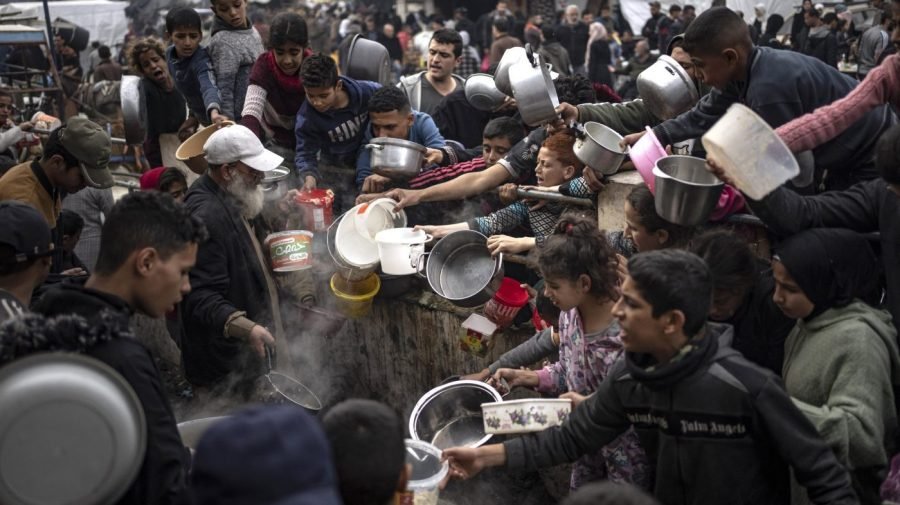
The deteriorating humanitarian situation in the Gaza Strip is sparking global indignation, with a group of experts warning the war-torn enclave is on the brink of famine, if it hasn’t already reached it.
The Integrated Food Security Phase Classification, or IPC — which is backed by the United Nations and major relief agencies — issued an alert Tuesday, contending “the worst-case scenario of famine is currently playing out in the Gaza Strip.”
But the alert does not formally designate famine in the territory. A famine rating would require three thresholds to be reached: at least 20 percent of households facing an extreme lack of food, at least 30 percent of children suffering from acute malnutrition and two people for every 10,000 dying per day due to outright starvation or to the interaction of malnutrition and disease, according to the IPC.
Experts have not been able to corroborate the latter as it would require gathering data in Gaza, which it cannot access due to severe restrictions imposed by Israeli authorities following Hamas’s attack on Oct. 7, 2023.
Israel maintains it is not responsible for the hunger crisis, despite restricting aid into Gaza at times throughout the conflict. The Israeli government justified a full blockade of aid in March on the basis that Hamas would otherwise steal the supplies. The militant group has rejected this claim.
More than 100 aid organizations, including Médecins Sans Frontières and Save the Children, have accused Israel of causing “mass starvation” by shutting its land crossings for months while tons of food, clean water, medical supplies, shelter items and fuel sits idle at the border.
Since May, Israel has allowed some aid back into Gaza, but aid agencies assert that the amounts are woefully insufficient. Distribution sites run by the U.S.-backed Gaza Humanitarian Foundation have been wracked by fatal violence. A spokesperson for a United Nations human rights body said in mid-July that, by then, 875 people had been killed while seeking aid in Gaza, including 674 “in the vicinity of GHF sites.”
Recent weeks have seen a rise in international condemnation of Israel’s policies as malnutrition in Gaza has grown more dire. At least one person in three in Gaza is going without food for days at a time, according to the IPC, and at least 16 children under the age of five have died from “hunger-related causes” since mid-July.
In response, the office of Israeli Prime Minister Benjamin Netanyahu said in a statement Monday it would continue to work with international aid agencies, as well as the U.S. and European nations, “to ensure that large amounts of humanitarian aid flows into the Gaza Strip.”
“As part of this effort, Israel paused IDF operations in key populated areas of Gaza from 10 a.m. to 8 p.m. every day and designated secure routes from 6 a.m. to 11 p.m. that will ensure the safe passage of more convoys delivering aid,” the statement read.
President Trump, asked point-blank on Monday if he agrees with Netanyahu’s assessment that there is no starvation in Gaza, said, “Based on television, I would say not particularly.”
“Some of those kids, that’s real starvation stuff. I see it. You can’t fake that,” Trump acknowledged while on a visit to Scotland, adding, “We have to get the kids fed.”
The IPC has declared famine four times in the last twenty years: in Somalia in 2011, South Sudan in 2017 and 2020, and Sudan in 2024.


